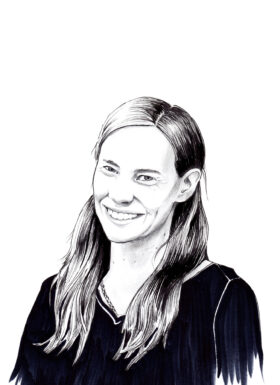-
Ammodo Science
Award for groundbreaking research2024 -
Ammodo Science Award
The Ammodo Science Award for groundbreaking research is intended to stimulate potentially groundbreaking research. Such research is usually the result of team work, and for that reason this Award is for research being carried out by a group of researchers working together, and is intended to recognise the contribution of every member of the group. The Award is presented every two years in four scientific domains: Biomedical Sciences, Humanities, Natural Sciences and Social Sciences.
-
Nomination & Selection
Each edition, the Ammodo Science Award for groundbreaking research includes a cash prize of 1,600,000 euros for each of the science domains Natural Sciences and Biomedical Sciences and a cash prize of 800,000 euros for each of the science domains Humanities and Social Sciences. The rectors of the fourteen Dutch universities affiliated to Universities of The Netherlands (UNL) may nominate a maximum of one research project per scientific domain.
-
Winners
The Ammodo Science Award for groundbreaking research focuses on potentially groundbreaking research and ensures that all researchers involved in the winning project are recognised and rewarded.
Toby Kiers
Laureate Natural Sciences 2019

Toby Kiers (1976) studied Biology at Bowdoin College in Maine (USA), and continued her education with a PhD in Ecology and Evolution at the University of California in Davis. Shortly after this she made her way to the Netherlands after short stays in Panama, Kyoto (Japan) and Amherst (USA). She is now Professor in Evolutionary Ecology at the VU in Amsterdam, and a Senior Research Associate at the University of Oxford.
Kiers has received various awards including both a VENI and a VIDI grant from the NWO, and an ERC starting grant. She has also received substantial funding from the National Science Foundation. Perhaps most outstanding are the awards she has won for the communication of her work, such as the NWO BioArt & Design Award. In 2018 Kiers made the Web of Science list of most highly cited researchers.
WebsiteResearch focus
Toby Kiers uses innovative methods and economic theory to explain how plants and fungi cooperate.
The Underground Market
With their slow, swaying leaves, plants seem to enjoy a peaceful existence. But all is not as it seems, because below ground there is a frenzy of activity. Plant roots find themselves among teeming insects, worms, micro-organisms and countless fungal ‘roots’ called mycorrhizae. It with these fungi that the plant roots enjoy an especially close relationship, where nutrients are exchanged, and sometimes the fungi even grow into the plant roots.
Toby Kiers studies this living arrangement, this ‘mutualism,’ between plants and fungi. It seems that both sides benefit from the interaction, but how does it arise, and what are the conditions? Kiers is a pioneer in the application of economic theory to the relationship between roots and fungi, and she uses fluorescent nanoparticles to make the exchange of nutrients in the ground visible and measurable. There appears to be a true market place under ground. Plant roots negotiate with fungi about what they have to offer, and the fungi grow into the root which makes the best proposal.
In the end it all comes down to cheating: no natural thing or creature helps another without some element of self-interest. In other words: those plants and fungi are trying to deceive each other, and this only results in a mutually beneficial cooperation if both sides can come up with a strategy to deal with that deception. They are no different to humans.